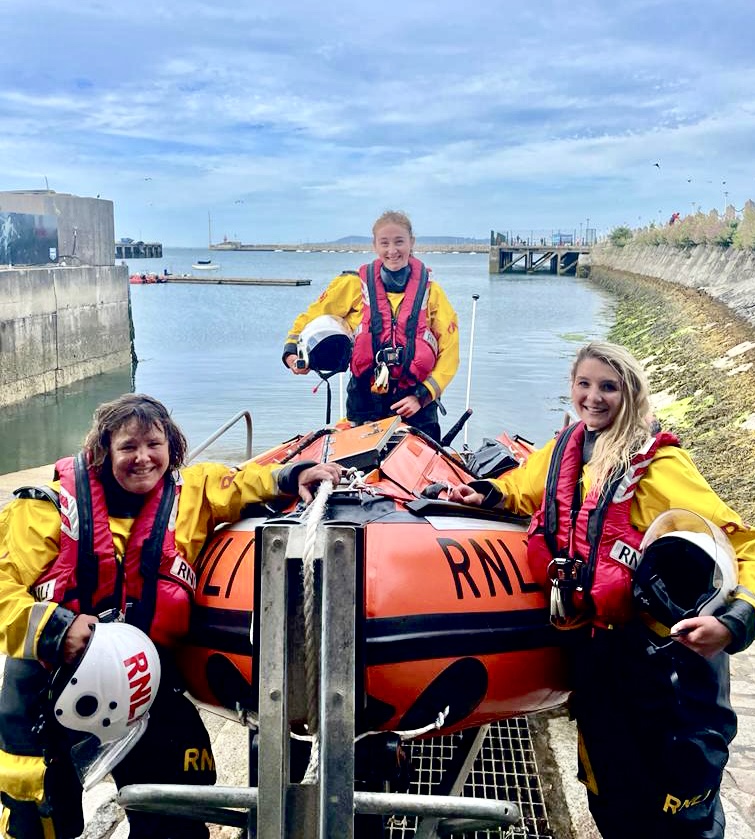For generations, women have saved lives, launched lifeboats, and raised millions for the Royal National Lifeboat Institution (RNLI).
At Dun Laoghaire RNLI, seven women are continuing this lifesaving legacy.
As an example of women saving lives, last July an all-female lifeboat crew from Dun Laoghaire RNLI rescued four teenagers after they were overcome by the outgoing tide and found clinging to The Wooden Bridge at Dollymount.
The crew launched the inshore lifeboat at 5.08pm and arrived on scene at 5.25pm.
The lifeboat was helmed by Laura Jackson with crew members Moselle Hogan and Hazel Rea onboard.
The crew brought all four casualties safely ashore.
54 years since the first woman qualified as an RNLI crew member, women make up around 12.3% of the RNLI’s volunteer lifeboat crew, a figure which is steadily growing.
Helm Laura Jackson said: “International Women’s Day is all about girl power, but we are one crew and everyone is equal regardless of what role they do for the wider Dun Laoghaire RNLI team – it doesn’t matter if you are female or male, we are all working together to save lives and keep people safe.
“If we can inspire other women and girls to think that this is something they can do too, then that is a bonus.
“To anyone thinking about joining the RNLI, just give it a go.
“Even if you haven’t got any background on the water or don’t know your way around a boat, there are roles for everyone, and the training and support is comprehensive.”
Sue Kingswood, RNLI Inclusion and Diversity Manager said: “Creating an inclusive culture which supports diversity is key to our long-term sustainability.
“So, we’re working hard to make sure that a wide range of people see the RNLI as a charity where they’re welcome as volunteers, supporters, or staff.
“As we approach our 200th anniversary, women are now more evident in operational search and rescue (SAR) roles throughout the RNLI than they have ever been before. They are also better represented across operational management and in SAR training roles, which is great to see.
“However, we still have a long way to go to achieve the representation we would like, not only where women are concerned, but across a much broader spectrum of diversity too.”
